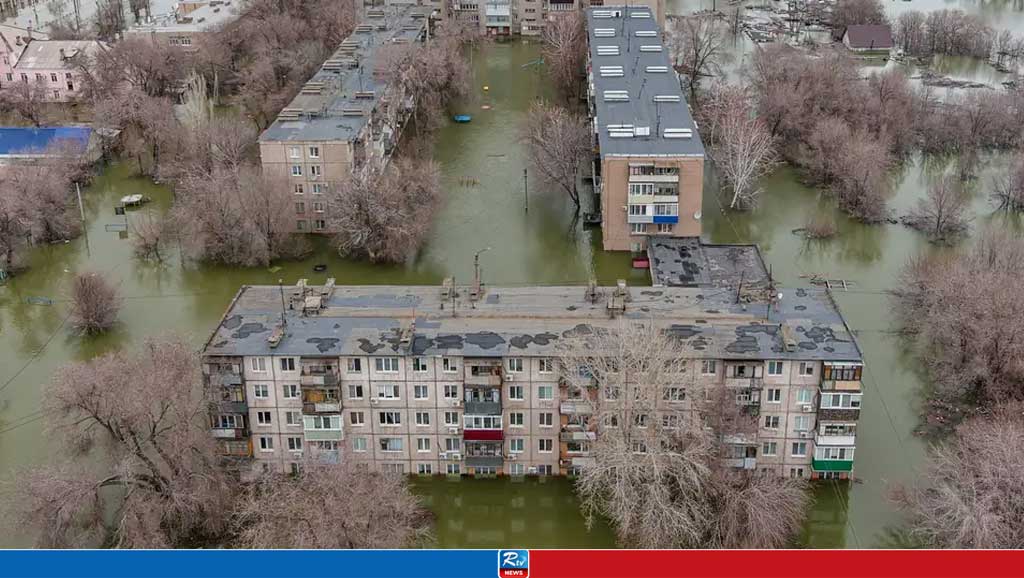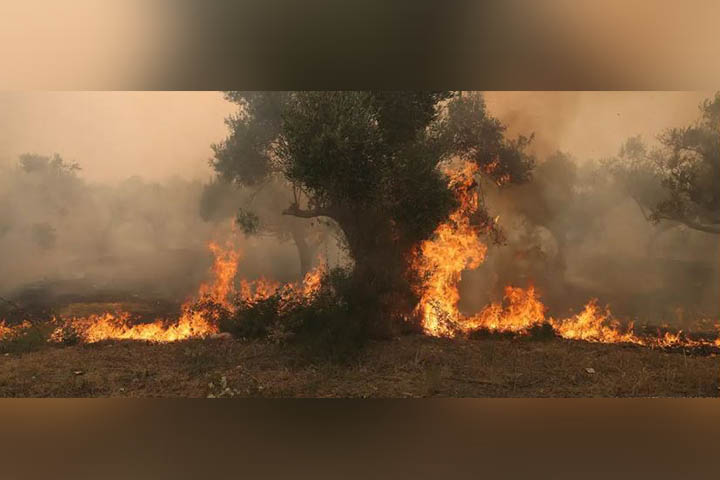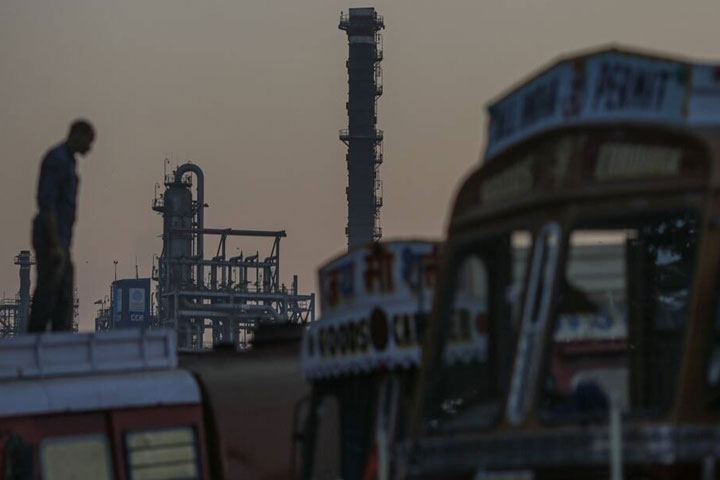South China Sea: Pressure mounts on Beijing in region as Marcos says Philippines will never give an inch
Philippine President Ferdinand Marcos Jnr said Manila will never abandon its claims in the South China Sea amid heightened tensions with China in the disputed waterway, according to a strongly-worded statement.
“As I have said before, and I will say again, the Philippines will not give up a single square inch of our territory to any foreign power,” he told a forum in Honolulu on Sunday, according to his press office, without explicitly naming Beijing.
“Supported by the rules-based international order and our growing partnerships, both time-tested and new ones, we will insist on the preservation of the sovereignty and integrity of the country while working closely with international partners.”
Do you have questions about the biggest topics and trends from around the world? Get the answers with SCMP Knowledge, our new platform of curated content with explainers, FAQs, analyses and infographics brought to you by our award-winning team.
The Philippine leader’s comments came a day after he met Chinese President Xi Jinping on the margins of the Apec summit, where he said disputes over the South China Sea should not define bilateral ties – but he stressed that “problems remain”.
In San Francisco, Marcos also held talks with United States Vice-President Kamala Harris where they discussed “some of the ways forward” on the South China Sea situation.
A White House statement said they reaffirmed the US-Philippines alliance, discussed efforts to deepen security ties and repeated their pledge to uphold international rules and norms.
Manila has appeared to draw closer to Washington and its allies in recent months on the back of clashes between Philippine and Chinese vessels in the South China Sea.
Other Southeast Asian countries have not been as apparent as Manila in forging warmer ties with Washington but analysts said the region appeared to be piling growing pressure on China – especially when it involves disputes in the resource-rich waterway that Beijing claims in almost its entirety.
China, they suggested, had to build deeper trust with the region and soften its aggressive campaign in the sea or risk its influence dwindling and countries gravitating towards the West.
According to Carl Thayer, professor emeritus of politics at the University of New South Wales in Australia, the Philippines under the Marcos administration has sought stronger military ties with the US and its allies. That move, he warned, could potentially bring more confrontations with China in the South China Sea.
The Philippines is one of several Southeast Asian countries that claims part of the sea.
This month, Associated Press reported that at least 38 Chinese ships chased and encircled Philippine vessels near the Second Thomas Shoal in the contested Spratly Islands, or Nansha as they are known in China, the latest in a string of confrontations between the two countries.
The Philippine coastguard condemned China’s “unprovoked acts of coercion and dangerous manoeuvres”, labelling them “illegal and irresponsible”.
Thayer said Marcos had “moved to reassert Philippine sovereignty” over its waters since taking office, including stepping up patrols and carrying out supply missions while revitalising defence ties with the US and its allies.
Manila granted American troops access to four new bases, and held an 11-day joint military exercise with the US, Japan, South Korea and Britain until November 20.
In August, the Philippines agreed to conduct joint patrols with Australia in the South China Sea and most recently, Manila signed an agreement with Japan to firm up security cooperation.
“The die has already been cast in relations between China and the Philippines,” Thayer said, adding that Beijing showed no signs of backing down as it pinned the blame on Washington and Manila.
Don McLain Gill, a lecturer at De La Salle University in Manila, said Manila’s desire to safeguard its sovereign rights “did not sit well for Beijing’s narrowly driven regional ambitions”.
While China was not seeking to escalate the situation into a full-blown war, it was trying to provoke and put pressure on the Philippines to possibly “constrain Manila’s political will” to pursue its interests, he said.
Prashanth Parameswaran, a fellow with the Wilson Centre’s Asia programme, said China “cannot keep shooting itself in the foot and then blame Manila or Washington for pulling the trigger”.
“One would hope that China reflects on how its own actions have once again pushed a Philippine government to move closer to the US and intensified the risk of a conflict erupting in the South China Sea,” he said.
“If China is not careful, it will walk into the trap of self-containment by driving more countries like the Philippines away from Beijing and towards Washington, thereby exacerbating US-China competition and increasing the risk of potential conflict.”
Most Southeast Asian countries count China as a key trading partner and said they would not take sides in the heightened US-China rivalry but there have been signs some governments are increasingly vocal about their concerns.
In August, when China released a new “standard map” with unilateral claims to most of the South China Sea, it prompted a strong reaction from the region, including Malaysia, Indonesia, Vietnam, the Philippines and Brunei.
Manila aside, Thayer pointed out that Vietnam had earlier this year expressed displeasure over China’s maritime presence in its exclusive economic zone while it upgraded ties with the US to a comprehensive strategic partnership.
Indonesia, which has had disagreements with China over the exclusive economic zone off the Natuna Islands near the South China Sea, has ramped up military cooperation with the US.
“China is definitely facing pressure on three bilateral fronts in Southeast Asia,” Thayer said.
He said Southeast Asian countries would be divided over Manila’s strengthened defence ties with the US, with some concerned about the risk of heightened regional tensions if the situation between China and the Philippines worsened. In particular, Indonesia, Vietnam and Singapore were likely to welcome an enhanced American presence while Malaysia would be less sanguine.
Sarah Teo, an assistant professor at the S Rajaratnam School of International Studies in Singapore, said recent engagement between the Philippines and the US was not likely to cause a shift in the behaviour of other Southeast Asian countries.
Rather, she said, any change would be driven by factors including the approaches of China and the US towards the region and domestic sentiments, as well as the state of bilateral ties between individual countries and their external partners.
But if China sought closer relations with the region, it must “consider how to better manage its disputes and disagreements” with other countries, she said.
Similarly, Gill from De La Salle University said that even as the region understood the threat posed by an assertive China, domestic perceptions within countries varied, resulting in different state responses. He expected Southeast Asian countries to hedge, saying it was unlikely states would address China the same way Manila did.
As countries put pressure on China, Thayer said Beijing had attempted to deflect concerns by focusing on a proposed code of conduct in the South China Sea.
China and the regional Asean bloc last month agreed to start on the third reading of the document but analysts have long doubted the process would be smooth sailing because differences – such as whether it would be legally binding – remained.
Thayer suggested that China had the means to influence Southeast Asian economies including through trade and investment and funding for infrastructure projects under its Belt and Road Initiative.
Gill said that given instances where China had “weaponised” its economic clout when it felt countries were “out of line”, Southeast Asian nations would opt for alternative security and development options if the opportunity arose.
US to export nuclear technology to Philippines in major deal
Parameswaran, the Wilson Centre fellow who is also founder of a newsletter on regional developments called Asean Wonk, said China must stop its “coercive actions” against Southeast Asian states and “find a way to respect their interests in the South China Sea”. If not, Beijing’s successes in other areas, including the economic domain, could be limited.
“If China doesn’t address the gap between its words and actions in the South China Sea, its coercive actions will continue to undermine trust in diplomatic initiatives, limit inroads in its ties with Southeast Asian countries and intensify the risk of conflict,” he said.
“The South China Sea is a test of what kind of power China is in Southeast Asia, and Beijing will pass that test if it accommodates the interests of smaller countries while advancing its own interests rather than coercing them using its bigger military might.”
source: South China Morning Post
24 Nov 2023,17:44
















 Live Tv
Live Tv









